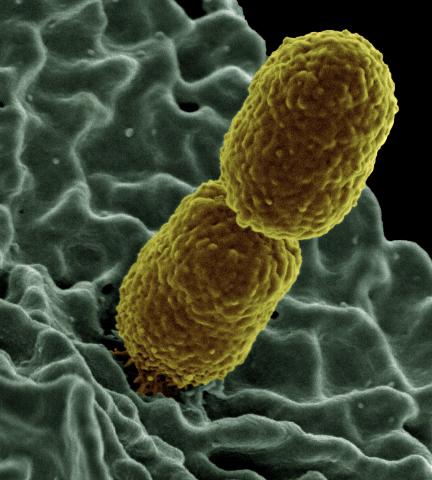Rapid Screening Test Identifies Potential Therapies Against Drug-Resistant Bacteria

Photo: NIAID
Researchers at NCATS, the Clinical Center and NIAID have created a new way to identify drugs and drug combinations that may potentially be useful in combating infections that are resistant to many different antibiotics. They developed a test to rapidly screen thousands of drugs to determine how effective they were against a variety of types of resistant bacteria.
The screening method provides a potential new approach to repurpose known drugs and compounds to potentially help deal with powerful, hospital-borne infections, as well as emerging infectious diseases.
NIH scientists used the test to screen approximately 4,000 approved drugs and other biologically active compounds, identifying 25 that suppressed the growth of two drug-resistant strains of Klebsiella pneumoniae that have become resistant to most major types of antibiotics. Drug-resistant Klebsiella has been a source of fatal infections in many hospitals across the country.
The researchers also used the screening test to gauge the effectiveness of combinations of drugs against antibiotic-resistant bacteria in this study. They found three different three-drug combinations that were effective against 10 common strains of multi-drug-resistant bacteria.
The results were published Nov. 9 in the journal Emerging Microbes & Infections.
The new screening test applies high-throughput screening technology to examine thousands of drugs and compounds that inhibit bacterial growth. The 25 newly identified drugs and compounds consisted of 11 FDA-approved drugs and 14 drugs still under investigation. They include antibiotics, antifungals, antiseptics and an antiviral, antimalarial and anticancer drug/compound.
“The results are very promising and we think that the test can eventually help repurpose approved drugs and other compounds and find clinically relevant drug combinations that can be approved for use in different ways that we have never used before,” said Dr. Wei Zheng of NCATS.
